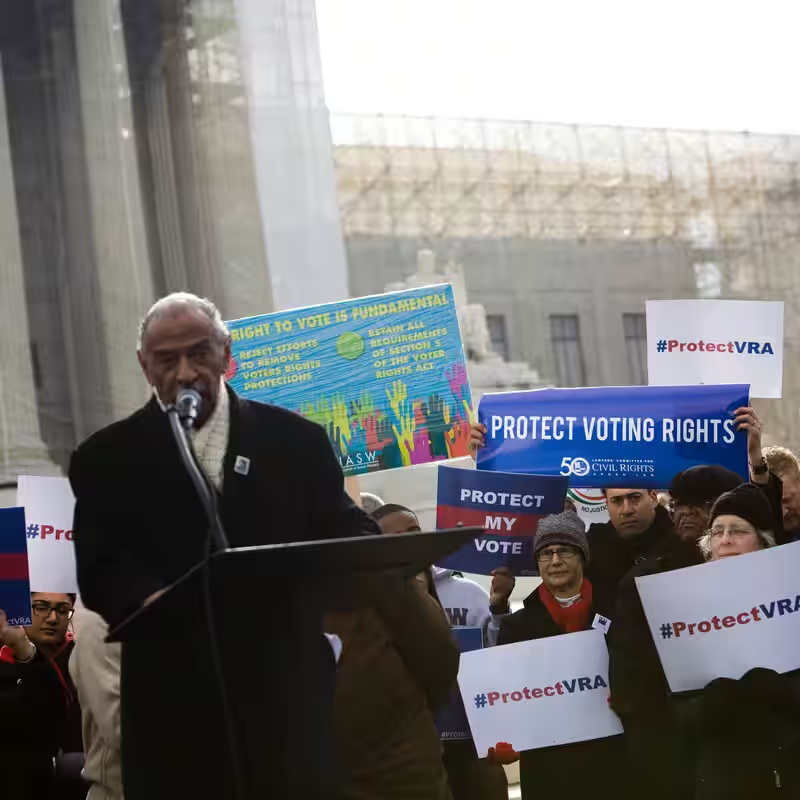Table of Contents
- What Remains of the Voting Rights Act?
- Louisiana Case: The Final Test for Section 2
- From Shelby County to Callais: A Decade of Erosion
- Why Section 2 Still Matters—Especially Now
- Stakes for American Democracy
- Sources
What Remains of the Voting Rights Act?
The Voting Rights Act—once hailed as the crown jewel of the civil rights movement—is facing what may be its final reckoning. In 2013, the Supreme Court’s landmark decision in Shelby County v. Holder dismantled the law’s enforcement engine: Section 5, which required states with histories of discrimination to get federal approval before changing voting rules. But the Court left one key tool intact: Section 2 .
Now, more than a decade later, even that last pillar is under direct threat. On October 15, 2025, the justices heard rearguments in Louisiana v. Callais, a case that could effectively declare Section 2 unconstitutional—completing what critics say is a quiet, decade-long campaign to neutralize the Voting Rights Act entirely .
Louisiana Case: The Final Test for Section 2
At the heart of the dispute is Louisiana’s 2024 congressional map, which created a second majority-Black district after federal courts found the original map diluted Black voting power. The state’s Black population makes up roughly one-third of residents, yet they were confined to just one of six districts—until courts intervened.
After the redrawn map passed, a group of twelve white voters sued, claiming it was an illegal racial gerrymander. A divided federal panel initially struck it down, but the Supreme Court allowed it to stand for the 2024 election—leading to the election of Cleo Fields, a Black Democrat, in the new district .
What makes this case extraordinary is not just the map, but the Court’s unusual move to reargue it—and then ask a sweeping new question: Does the intentional creation of a majority-minority district violate the 14th or 15th Amendments? Legal experts say this signals the conservative majority may be preparing to strike down Section 2 itself .
Timeline of Erosion: Voting Rights Act Under Judicial Siege
| Year | Case/Event | Impact |
|---|---|---|
| 1965 | Voting Rights Act signed | Prohibits racial discrimination in voting nationwide |
| 1982 | Section 2 amended | Expanded to cover discriminatory effects, not just intent |
| 1993 | Shaw v. Reno | Court warns against “bizarre” majority-Black districts |
| 2013 | Shelby County v. Holder | Section 5 preclearance gutted; Section 2 remains |
| 2023 | Allen v. Milligan (Alabama) | Court upholds Section 2—but with cautionary notes |
| 2025 | Louisiana v. Callais | Potential end of Section 2 as a legal tool |
From Shelby County to Callais: A Decade of Erosion
In Shelby County, Chief Justice John Roberts wrote that Section 2 “remains” as a safeguard. Yet even then, his skepticism was clear. As a young Reagan-era lawyer, Roberts had opposed strengthening Section 2, calling race-conscious remedies “constitutionally suspect” .
Now, with a 6-3 conservative supermajority, the Court appears ready to follow through. Justice Brett Kavanaugh, who sided with liberals in the 2023 Alabama case, has repeatedly hinted that race-based redistricting should have an “expiration date.” During Wednesday’s arguments, he questioned whether Section 2 still aligns with current social realities .
Why Section 2 Still Matters—Especially Now
Section 2 is not just a Southern issue. Between 1982 and 2021, over 200 Section 2 lawsuits were filed outside the South—in states like New York, Montana, and South Dakota. It has been used to protect Native American ballot access, challenge at-large school board elections, and ensure fair representation in city councils .
Under the Gingles test, plaintiffs must prove three things: (1) a compact minority population, (2) political cohesion among that group, and (3) consistent white bloc voting that defeats minority-preferred candidates. This framework has enabled the election of diverse representatives—from Alabama’s Shomari Figures to Louisiana’s Cleo Fields.
Stakes for American Democracy
If Section 2 falls, experts warn the consequences will be immediate and severe. Up to a dozen Democratic-held House seats in the South could be eliminated through Republican-led redistricting. More broadly, minority communities would lose their primary legal recourse against discriminatory maps and voting laws.
“This isn’t just about Louisiana,” said Janai Nelson, president of the NAACP Legal Defense Fund, during oral arguments. “It’s about whether the promise of equal political participation still exists in America.”
Former Attorney General Eric Holder echoed the alarm: “Any decision that fails to reaffirm precedent could shatter Americans’ faith in the judicial system.”




